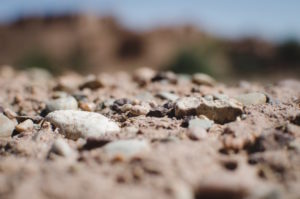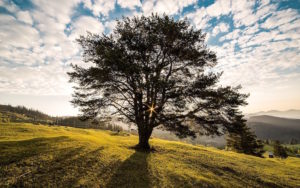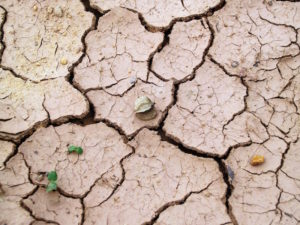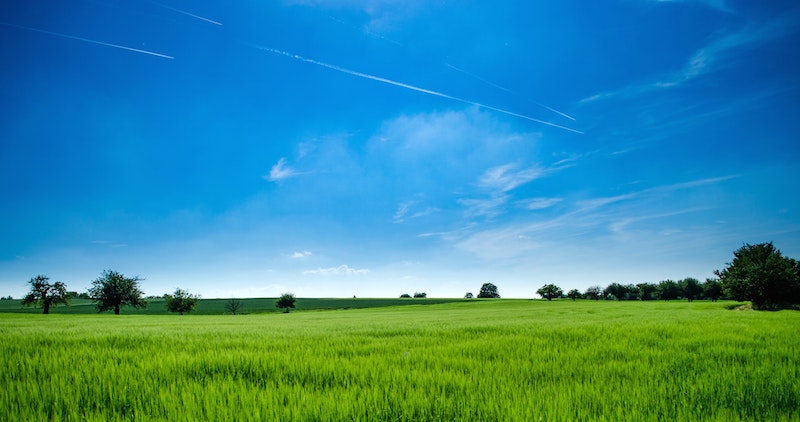Are you dreaming of building your own home but wondering how to buy land? Are you yearning to own your own woodland or meadow? Or maybe you’ve set your sights on a new money making opportunity with a private car park in your hometown? There are lots of reasons you might be researching how to buy land. If you’ve never done it before, buying land can seem daunting. From finding the right site to purchasing land insurance to protect you financially, this guide aims to make it easier. With these 9 things to consider when buying land, we outline the risks you face when you make a purchase and how to protect yourself before and after.
1) Finding your perfect plot made easy
The first step in learning how to buy land is to decide what and where you’re looking for. Then there are lots of places to start your search. Speak to estate agents, check local auctions, and look to government agencies that may be disposing of excess land. It’s also worth contacting private owners directly. For example, property owners with a large garden plot may be prepared to sell you a part of their land.
Take action
- Narrow down your search by choosing your location.
- Take the time to go and chat to the estate agents and land agents covering this area.
- Look online to find government land to buy.
- Drive around the area you want to buy your land. There’s nothing to stop you approaching private property owners to see if they may be interested in selling land to you.
 2) Check the suitability of the plot by focussing on ground conditions
2) Check the suitability of the plot by focussing on ground conditions
Once you’ve found a plot, the next step is to check if it is suitable for your project. Getting this right at the outset, or at least budgeting properly to overcome potential problems, can mean the difference between your plans becoming a success or failure.
The ideal ground conditions you’ll be looking for will vary depending on what you want to do with the land. For example, if you’re using the land for agriculture, you’ll ideally need fertile soil that’s good for growing.
Take action
Use this simple checklist to make sure the ground conditions won’t hamper your project.
If you intended to use it to build a house or houses:
- Check if it could have been previously contaminated with chemicals? If so, make sure the costs of clearing the ground to be safe is within your budget
- Is it on a floodplain?
- Is it too rocky for digging foundations?
- May the land be liable to suffer subsidence?
If you want to grow plants or trees:
- Is the soil quality suitable for growing?
If you have any doubts about the suitability of the land, get it tested by a qualified surveyor.
 3) Identify access points to reduce potential problems
3) Identify access points to reduce potential problems
Access issues can pose two potential problems that could end up costing you big. They’re a major potential cost of owning land in the UK.
- Does the plot have good access to the public highway?
Without suitable access, it can be hard for you to enjoy your land the way you want to.
Take action
Firstly, check what access there is to the land for you, including vehicle access. You should watch out for a ‘ransom strip.’ This is a trick where the current landowner holds back a piece of land between your plot and the access point. They then will not allow you access over it unless you pay extra – effectively holding you to ransom.
- Secondly, check for shared access or public rights of way
If there is shared access or a public right of way, you’ll need to factor in potential extra costs to your budget.
Take action
If there is shared access, for example, a shared driveway, make sure there is a legal agreement in place about how maintenance will be paid. Insurance is another cost of owning land in the UK that you’ll need to budget to cover you if someone is injured while on this piece of land.
Don’t forget, while easy access means you can enjoy the land the way you want to, it can also leave you more exposed to risks. For example, unwanted members of the public could access your land and cause damage or injure themselves.
Take action
Comprehensive land insurance can protect you financially from the risks of other people accessing your land. Please see 9) below for more information and guidance on the types of insurance you’ll need and how to get the best price.
4) How to buy land that is the shape and size you need
On paper, the size of a piece of land might meet your needs. But it’s important to double check that the shape and configuration of the land truly give you the space you need. For example, a piece of land may be measured as 5 acres, but if it is an irregular shape, you may not be able to use all of the land to best effect. This is a key thing to consider when buying land that is often overlooked.
Take action
- Look at the shape of the piece of land. How will this work with your plans? Can you still realise your plans within this shape?
- What about the ground level? If you plan to build on a sloping plot, it could cost you more. Have you budgeted for any extra costs this could result in?
- If the shape or level of the land is going to cost you more, make sure you use the extra cost of owning this land and the associated extras in your price negotiations.
 5) Plan ahead to make seeking planning permission a dream
5) Plan ahead to make seeking planning permission a dream
Are you buying a land plot with planning permission? If so, make sure it has not expired, or won’t expire during the time it takes for you to complete the purchase. It’s also worth checking for past planning applications to see what has been permitted or refused for the land in the past. And double check if it’s just outline planning permission. If that’s the case, you’ll need to get the final details agreed, and that can be a long process.
Take action
- Compile a file of any current or past planning applications.
- Make a note of what has been agreed and refused
- Double check the dates of permissions.
6) Check a lack of water and waste connections won’t leave you high and dry
Water is one essential that you’ll need if you plan to use the land to build a house or for livestock. Check with the agent to see if there is a mains water connection on site or a well.
Take action
If there is no mains water connected, don’t let that put you off. In most cases, you’ll be able to get your own supply using a borehole. The costs of this vary according to the location and geology of the site, so you’ll need to get a quote for this before you make the purchase.
Off mains sewerage is also relatively simple. Again, the costs of owning land in the UK will depend on the project and geology of the site, so it’s worth getting a quote before you commit to a purchase.
 7) Make sure there’s nothing else that could stop you using the land the way you want to
7) Make sure there’s nothing else that could stop you using the land the way you want to
Is there anything else that could affect your ability to use the land you want to? Remember, most problems can be overcome, but you’ll need to factor in extra costs and potential time delays.
Take action
Use our checklist below to tick off any other potential problems that could impact your project.
- Are there any public rights of way on the land?
- Do any trees on the land have a tree preservation order? If so, you’ll have to build around these, so it’s worth discovering first.
- Look for overhead power cables that could make it trickier to carry out your plans quickly.
8) Identify any potential hidden or apparent dangers and mitigate these for your peace of mind
Did you know that a trespasser can sue you for damages if they hurt themselves on your land? That’s right. Even if they don’t have your permission to be there, someone can sue you if they prove you did not exercise enough care to protect them from harm. It might not seem fair, but legally the onus is on you to protect the public from injury. That means that even if someone has an accident while trespassing, they can make a claim against you, and if you can’t prove you were not negligent, you’ll be liable.
Take action
If you’ve got a building site or water, like a pond or stream, on your land, then this could cost you a lot in potential compensation. All landowners, whether in the countryside, town, or city should consider protecting themselves with landowner liability insurance. This includes:
- Commercial landowners – such as those owning an industrial estate or sports field
- Private landowners – including those who own common land or fields with or without footpaths
Types of claim:
- Damage to vehicles caused by potholes on a private piece of road, for example, when accessing an industrial estate
- An injury caused by a broken fence in town or countryside
- A tree on your land falls and causes injury or damage to person or property
- Injury due to a poorly maintained stile on your property
Even if you’re found not responsible, your legal fees to get to that point can be financially damaging. Insurance gives you peace of mind you can afford to defend your case, and won’t have to find the cash if you are found liable. This is an essential cost of owning land in the UK that may be overlooked.

9) Finding the right land insurance to protect you financially
What is land insurance?
Land insurance is designed to protect the owners of land against the financial cost of claims from anyone who accesses their land and is either injured or their property is damaged.
At its most basic, you’re purchasing public liability insurance. But by talking to an expert broker, you can also include other types of insurance in your land insurance policy. That could include:
- Cover to protect public access
- Employer’s liability insurance to protect employees working on your land
- Cover for legal expenses
- Cover to protect you against material damage to walls, fences, gates, and even street lighting.
What kind of land can you protect with land insurance?
Almost any kind of land can be protected by insurance. One of the most popular types of land insurance is to protect private roads and access. While this may be expensive for one person to take out, if there are multiple residents or occupants then a collective policy can be arranged to protect the rights and interests of everyone.
Other types of land can be covered too, including woodland, vacant plots, brownfield development sites, and pasture.
Take action
Look for things that could increase the amount you’ll need to pay for your land insurance, such as public footpaths on the land and water features. If the insurance is beyond your budget, it could have a significant impact on the viability of your purchase.
There are also other ways you can reduce the impact of insurance on your budget. The best way to get a competitive price is to shop around. Park Insurance has been providing clients with the very best in specialised insurance policies for 30 years. Our professional, knowledgeable advisors will help you put together a land insurance policy to protect your interests at an affordable price. As a preferred broker to many of the largest insurance providers in the UK, Park Insurance has a unique ability to match the right package to the right customer. We can help with everything from public and private liability insurance, through to buildings insurance, personal indemnity and loss of earnings insurance. Call us now on 0177 955 6835 or get a quote.
 Finally
Finally
When it comes to buying land, it’s wise to look before you leap. Do your research first with the help of this guide and find out the true cost of owning land in the UK, for your chosen plot. Use your head and compile a checklist of the top nine things you need to look out for. Set a budget for everything you’ll need and stick to it. That way you should find the purchase process fun and potentially profitable. Good Luck!

